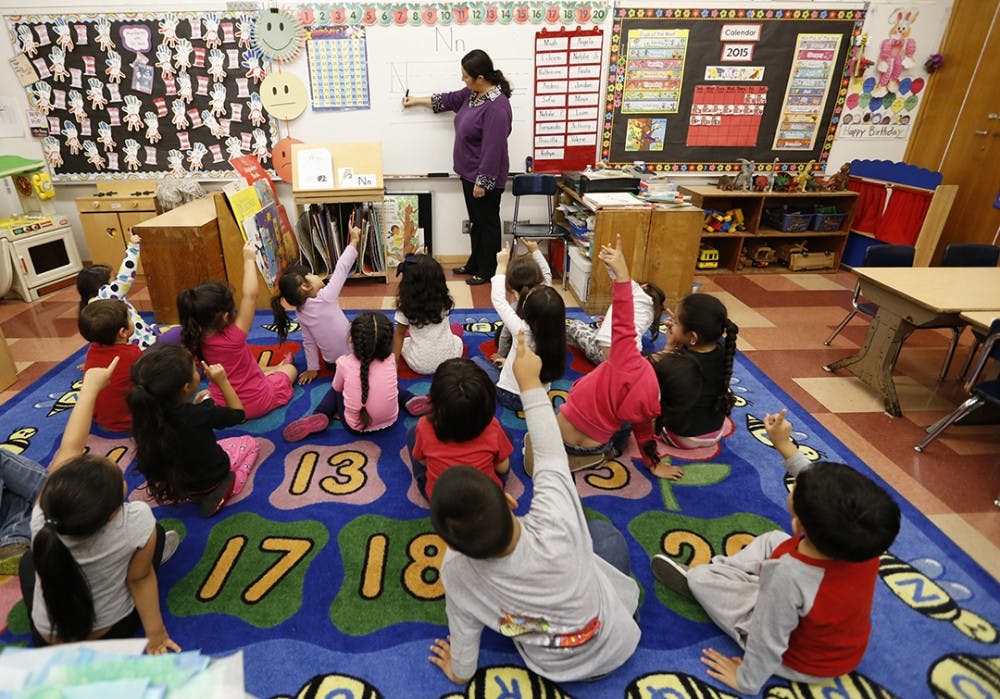April 1 in Chicago, Illinois, should have come and gone just as any other Friday does: school-aged children seated at desks with pencils in hand and recess on their minds. However, on this particular Friday, thousands of discontented public school teachers decided to strike against the state government’s failure to allocate proper funding to schools, a neglect which has resulted in not only the lack of proper resources for students but also the lack of fair pay for the teachers.
If this incident in Chicago had occurred in isolation, we perhaps could brush it to the side as an exception. But with increasing amounts of data surfacing exposing the truth behind inadequate compensation for public school teachers, it seems to have become the rule.
Across the country, men and women who dedicate their lives to educating children and setting them up for success in life are consistently ripped off when they receive their paychecks. Rather than the system placing delicious red apples on teachers’ desks every two weeks, it gives them sour apples filled with worms and bruises.
For those who claim that teachers are paid the adequate amount for their work, I challenge you to find a teacher who does not go above and beyond during the summer months — teachers’ only “off” time — preparing for the year to come. Just because they have to report to school about 9.5 months out of the year does not mean that they do not work just as hard and exert themselves as much as any other comparable worker in another field. In fact, teachers often spend the summer months catching up on the extensive and inevitably strict new standardization regulations for the upcoming school year. Beyond this, many of them take the time to tutor students who may need extra academic help and even go so far as to carry a notebook around with them at all times in case they think of a new idea for the upcoming year.
Yeah, the summer months are totally a vacation to teachers.
Let’s look at the average salary in a career field with more social prestige attached, not to mention great publicity for America and a huge paycheck for team owners: the NBA. While the average NBA player makes about $2.5 million annually, public school teachers earn on average between $43,000 and $49,000 — just above double the poverty level for a family of three — working diligently every day to help their students realize their potential. Teaching does not begin and end at the sound of a bell; teachers dedicate hours before and after school to grading, planning, reviewing and developing exciting lesson plans and informative lectures. Sports are undeniably important and entertaining. But are they really millions of dollars per year more important than the individuals who shape our children’s futures?
So relevant has this topic become that several studies have occurred that attempt to quantify the actual level of injustice facing public school teachers today. In what has become known as the “Teacher Pay Study” by Sylvia Allegretto and Lawrence Mishel, results indicate that the current wage gaps between teachers and comparable workers in other fields has increased tremendously since the 1970s. Using data from the Bureau of Labor Statistics and various associates, researchers discovered that, by the year 2015, the relative gap of wages between public school teachers and workers in other fields was 17 percent — compared with the 5.6 percent wage gap that existed in 1979. This statistic is startling.
Interestingly, as the issue of poor compensation for public teachers has risen to the public conversation, our nation has never been in more need of excellent teachers.
It’s almost as if college students don’t want to pursue a degree that will lead them to social judgment and minimal vertical mobility.
We shouldn’t have to report on stories of outraged teachers, arguably some of the most selfless people in the work force, going on strike just to have their needs met in order to properly do their jobs and live their lives. So next time you go back to your old high school to revisit your old teachers and mentors, make an effort to tell them just how appreciative you are of their dedication. Also, teachers really do appreciate a good red apple placed on their desks … just saying.

